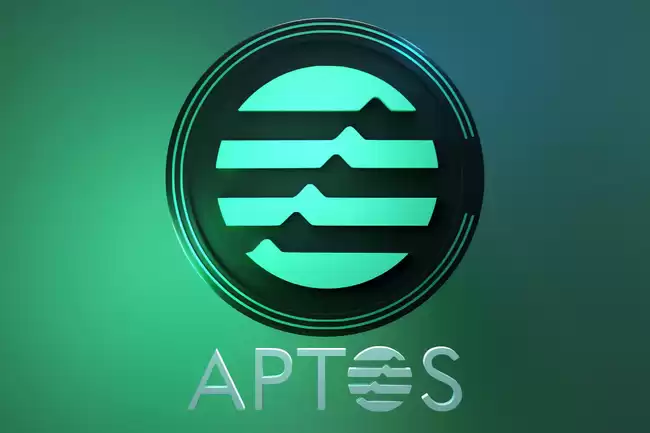-
 Bitcoin
Bitcoin $116400
-0.36% -
 Ethereum
Ethereum $4033
3.40% -
 XRP
XRP $3.302
-1.26% -
 Tether USDt
Tether USDt $1.000
-0.02% -
 BNB
BNB $796.1
1.67% -
 Solana
Solana $177.8
1.89% -
 USDC
USDC $0.9999
0.00% -
 Dogecoin
Dogecoin $0.2314
4.09% -
 TRON
TRON $0.3381
0.14% -
 Cardano
Cardano $0.7989
1.22% -
 Stellar
Stellar $0.4496
-1.84% -
 Chainlink
Chainlink $20.42
9.42% -
 Hyperliquid
Hyperliquid $41.17
0.88% -
 Sui
Sui $3.914
3.77% -
 Bitcoin Cash
Bitcoin Cash $584.7
1.52% -
 Hedera
Hedera $0.2632
-0.54% -
 Avalanche
Avalanche $24.09
3.40% -
 Ethena USDe
Ethena USDe $1.001
-0.02% -
 Litecoin
Litecoin $123.2
1.33% -
 Toncoin
Toncoin $3.318
-0.04% -
 UNUS SED LEO
UNUS SED LEO $8.984
-0.05% -
 Shiba Inu
Shiba Inu $0.00001323
2.85% -
 Uniswap
Uniswap $10.90
4.41% -
 Polkadot
Polkadot $3.999
3.34% -
 Dai
Dai $1.000
0.01% -
 Cronos
Cronos $0.1630
9.64% -
 Bitget Token
Bitget Token $4.484
0.82% -
 Monero
Monero $272.4
2.44% -
 Pepe
Pepe $0.00001173
6.03% -
 Aave
Aave $290.8
2.88%
How about APT coins? What are the advantages of APT coins? Is APT coin worth buying?
APT coins, the native cryptocurrency of the Aptos blockchain, enable fast and reliable transactions, enhanced security, and decentralized governance through staking and voting.
Oct 11, 2024 at 11:53 am

APT Coins: An Overview and Exploration
1. What are APT Coins?
APT coins are the native cryptocurrency of the Aptos blockchain, a Layer 1 blockchain network designed for scalability, security, and low transaction fees. The currency facilitates transactions, staking, and governance on the Aptos platform.
2. Advantages of APT Coins:
Enhanced Scalability: Aptos leverages Move, a safe and efficient programming language, and parallel execution capabilities to achieve high transaction throughput. APT coins enable fast and reliable transactions.
Improved Security: Aptos employs flexible smart contracts with built-in safety measures, reducing the risk of hacks and exploits. APT coins are secured by a distributed validator network.
Low Transaction Fees: Aptos utilizes a transaction ordering and gas metering system to optimize gas costs. APT coins allow users to conduct transactions at minimal fees.
Governance Participation: APT holders have the power to influence the development and governance of the Aptos blockchain through staking and voting. APT coins enable decentralized decision-making.
3. Is APT Coin Worth Buying?
The potential value of APT coins depends on several factors, including:
- Project Development: The Aptos blockchain is still in its early stages of development, but it has a promising roadmap and a team of experienced engineers.
- Industry Adoption: The adoption of Aptos and APT coins by developers and businesses will significantly impact their value.
- Token Distribution: The initial distribution of APT coins is designed to incentivize early adopters and promote long-term network stability.
- Market Trends: The overall cryptocurrency market can also influence the price of APT coins.
Whether APT coins are worth buying is a matter of personal investment strategy. However, the following factors may justify consideration:
- Long-Term Potential: Aptos is a promising blockchain with a strong focus on scalability and security.
- Value Proposition: APT coins offer advantages such as fast and affordable transactions, governance participation, and staking rewards.
- Diversification: Adding APT coins to a diversified cryptocurrency portfolio can help spread investment risk.
Conclusion:
APT coins are the native cryptocurrency of the Aptos blockchain, offering a range of advantages including scalability, security, and low transaction fees. While the value of APT coins is subject to market conditions, their potential and value proposition should be considered by investors looking for investment opportunities in the cryptocurrency space.
Disclaimer:info@kdj.com
The information provided is not trading advice. kdj.com does not assume any responsibility for any investments made based on the information provided in this article. Cryptocurrencies are highly volatile and it is highly recommended that you invest with caution after thorough research!
If you believe that the content used on this website infringes your copyright, please contact us immediately (info@kdj.com) and we will delete it promptly.
- SHIB Price, Meme Coin Mania, and the 250x Potential Hunt
- 2025-08-09 16:30:13
- SOL, ETFs, and AI: Crypto's Triple Threat Sensation!
- 2025-08-09 17:10:12
- Tokenized Stock on Solana: SOL Price Reacts to Exodus's Bold Move
- 2025-08-09 17:10:12
- Meme Coins on Blockchains in 2025: Hype or the Future?
- 2025-08-09 16:50:11
- World Liberty Financial, Public Listing, and WLFI Tokens: A New York Minute on the Trump-Backed Crypto Venture
- 2025-08-09 16:50:11
- Holy Grail Coin Hunting: Rare Errors and Value Increases You Need to Know!
- 2025-08-09 16:30:13
Related knowledge

What is Ethereum’s Slashing mechanism and how to punish malicious behavior?
Feb 20,2025 at 03:08am
Key PointsOverview of slashingDifferent types of slashing in EthereumIncentives and consequences of slashingIdentifying and reporting slashed validato...

What is the verifier node of Ethereum and how to become a verifier?
Feb 19,2025 at 06:00pm
The Verifier Node of Ethereum: A Comprehensive GuideKey Points:What is a Verifier Node?How to Become a Verifier NodeResponsibilities and Rewards of a ...

What is Ethereum’s staking, and how to participate and earn money?
Feb 19,2025 at 04:37pm
Key Points:Understanding Ethereum's Staking MechanismSteps to Participate in StakingBenefits and Rewards of StakingSecurity and Risk ConsiderationsTec...

What is Ethereum’s DAO (Decentralized Autonomous Organization) and how does it work?
Feb 20,2025 at 03:12am
Key PointsDefinition and Structure of a DAOGovernance and Decision-Making in DAOsBenefits and Use Cases of DAOsChallenges and Limitations of DAOsWhat ...

What is Ethereum's multi-signature wallet and how to improve security?
Feb 20,2025 at 02:18pm
Key Points:Understanding the Concept of a Multi-Signature WalletBenefits and Drawbacks of Multisig WalletsRequirements for Setting Up a Multisig Walle...

What is Ethereum's oracle and how to provide data for smart contracts?
Feb 21,2025 at 01:30am
Key Points:Understanding the concept of oracles in EthereumExploring different types of oraclesDetailed guide on how to provide data for smart contrac...

What is Ethereum’s Slashing mechanism and how to punish malicious behavior?
Feb 20,2025 at 03:08am
Key PointsOverview of slashingDifferent types of slashing in EthereumIncentives and consequences of slashingIdentifying and reporting slashed validato...

What is the verifier node of Ethereum and how to become a verifier?
Feb 19,2025 at 06:00pm
The Verifier Node of Ethereum: A Comprehensive GuideKey Points:What is a Verifier Node?How to Become a Verifier NodeResponsibilities and Rewards of a ...

What is Ethereum’s staking, and how to participate and earn money?
Feb 19,2025 at 04:37pm
Key Points:Understanding Ethereum's Staking MechanismSteps to Participate in StakingBenefits and Rewards of StakingSecurity and Risk ConsiderationsTec...

What is Ethereum’s DAO (Decentralized Autonomous Organization) and how does it work?
Feb 20,2025 at 03:12am
Key PointsDefinition and Structure of a DAOGovernance and Decision-Making in DAOsBenefits and Use Cases of DAOsChallenges and Limitations of DAOsWhat ...

What is Ethereum's multi-signature wallet and how to improve security?
Feb 20,2025 at 02:18pm
Key Points:Understanding the Concept of a Multi-Signature WalletBenefits and Drawbacks of Multisig WalletsRequirements for Setting Up a Multisig Walle...

What is Ethereum's oracle and how to provide data for smart contracts?
Feb 21,2025 at 01:30am
Key Points:Understanding the concept of oracles in EthereumExploring different types of oraclesDetailed guide on how to provide data for smart contrac...
See all articles

























































































